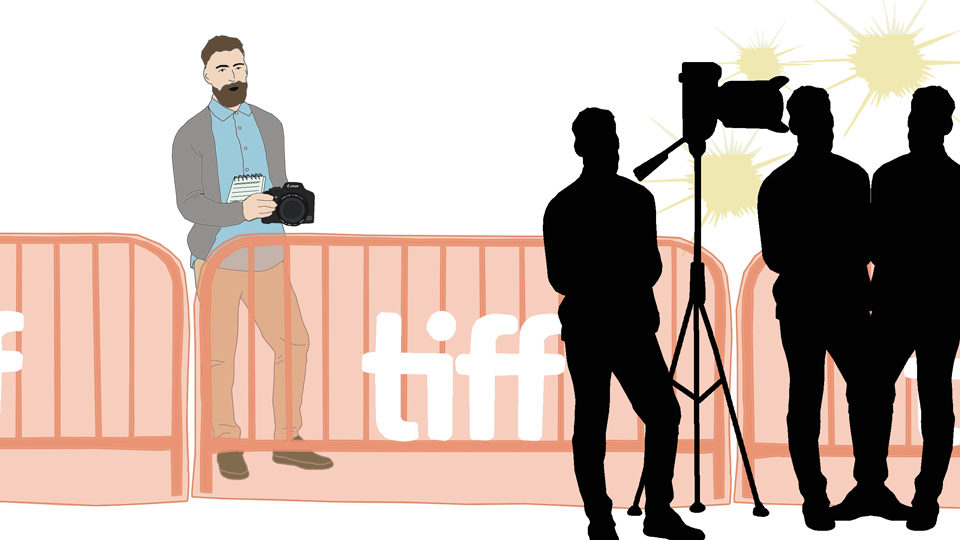Norman Wilner, a film critic for Now magazine, was all set to interview English filmmaker Sam Taylor-Johnson at the 2018 Toronto International Film Festival (TIFF) when she disappeared on him. Her movie, A Million Little Pieces, based on the memoir by James Frey, had just debuted at the festival and Entertainment One, the film’s Canadian distributor, had arranged the interview.
“They arranged for everything,” Wilner says. “We locked it down and then she decided to fly home, or she got an earlier flight. I don’t even know if that’s true. That might be an excuse they’re giving. The movie didn’t play very well so it’s also possible that they just decided to back out of a lot of these press opportunities.”
The loss of a high-profile interview can be devastating to a publication, but having covered TIFF for 30 years, Wilner has grown used to high-profile interviews vanishing in the winds, especially as a Canadian journalist. “The biggest problem any Canadian journalist faces,” Wilner says, “is that we are writing for a Canadian publication. If you are Canadian at this film festival, past a certain point, there’s an unspoken tier system.”
Wilner uses the example of the ubiquitously famous Ryan Gosling. Despite the actor’s Canadian roots, he’s controlled by an American publicist and distributor who give priority to the American media, even at a Canadian film festival like TIFF. “The American publicist over and over again—and this has been going on since the ’90s—they’ll claw back Canadian time the second something threatens their schedule.”
The biggest challenge for Canadian publications is the size of their audiences. “Generally, American publications have a larger reach and American media and film companies define the industry on a much larger scale than Canadian content,” Josiah Hughes, a film critic with Exclaim! magazine wrote in an email.
It doesn’t help the confusion that both American and Canadian publicists are trying to work the same movies, Hughes says.
TIFF does set up some press conferences, but individual interviews with major stars at the festival are arranged by the publicists, producers and distributors in charge of the film. It means that they determine who gets access.
“The TIFF publicists are actually terrific at getting you in touch with documentary filmmakers, independent filmmakers, or first-timers who are here for discovery,” Wilner says. “But that’s when they don’t have the apparatus of a distributor or a studio behind them.”
TIFF does look out for Canadian journalists. Most foreign publications, who have to send their crews out of the country, are granted one to two accreditations. But Toronto’s papers get to take advantage of their resources. At this year’s festival, Now had six accredited writers and one photographer.
Wilner’s role with a legacy publication like Now also grants him priority press status, meaning he should have first access to press and industry screenings. But this isn’t always helpful as not everything is a priority event. “A lot of them are not,” Wilner says. “Most of the press screenings don’t have a priority designation.”
And beyond the limited access Canadians receive, distributors and producers are allowing less time for the press. “More and more, the press access just isn’t there for most films because more and more distributors and producers are bringing their movies to festivals, having the big red carpet and then not doing interviews.” The priority, Wilner says, is shifting from interviews to photographs of the celebrities; it’s a theme that’s grown over time since TIFF started in 1976 as an indie roots festival.
But even in the case of photographs, Canadians get cut first. “The Vanity Fair photo shoots would take priority over a Canadian interview,” Wilner says. “If somebody runs behind, the Canadians are almost always the ones to get cut.”
So, Canadian film critics like Wilner and Hughes are often left waiting in line with everyone else, looking to Canadian distributors and publicists to fight for the Canadian media’s time with festival stars.
“All you know,” Wilner says, “is that if you’re Canadian media, you have less of a shot at getting the big interview.”
